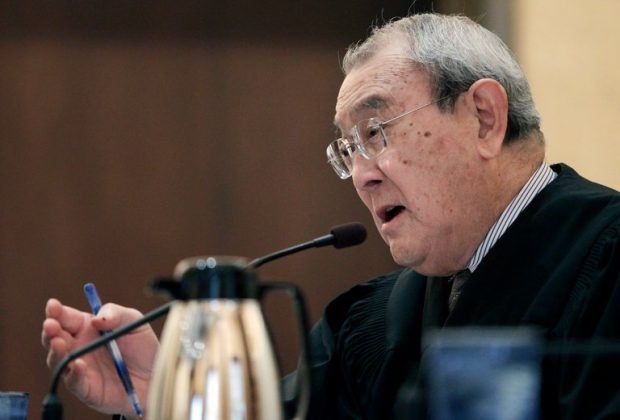By: Maggie Astor, New York Times ~ Originally published on Aug. 23, 2017
Arizona school officials were motivated by racial animus when they acted to shut down a Mexican-American studies program in Tucson’s public schools, a federal judge ruled on Tuesday.
In a 42-page ruling, Judge A. Wallace Tashima concluded that the elimination of the program in 2012, on the premise that it violated a state statute enacted two years earlier, infringed on students’ First and 14th Amendment rights. The court has not yet scheduled a hearing on what to do next.
“The court is convinced that decisions regarding the MAS program were motivated by a desire to advance a political agenda by capitalizing on race-based fears,” wrote Judge Tashima, of the United States District Court for the District of Arizona.
The ruling focuses primarily on the actions of Tom Horne and John Huppenthal, two former Arizona schools superintendents who concluded that the Mexican-American studies program for middle and high schools, sometimes referred to as La Raza, violated a statute known as A.R.S. 15-112. Passed in 2010, it bans public and charter schools in Arizona from offering courses that “promote the overthrow of the United States government,” “promote resentment toward a race or class of people,” “are designed primarily for pupils of a particular ethnic group” or “advocate ethnic solidarity instead of the treatment of pupils as individuals.”
In a document dated on his last workday as superintendent, Mr. Horne wrote that the Tucson program violated that statute — which did not take effect until two days later. Once it took effect, his successor, Mr. Huppenthal, hired an independent auditor to investigate the program.
In May 2011, the auditor reported that the program did not, in fact, violate A.R.S. 15-112 — at which point Mr. Huppenthal and other officials at the Arizona Department of Education opened their own investigation. Judge Tashima wrote that when the investigation began, the officials had already come to the conclusion that the program was illegal. Then, he found, the department conducted its inquiry solely on the basis of course materials, without attending any classes or speaking to any teachers.
Ultimately, Mr. Huppenthal directed the department to withhold 10 percent of the Tucson Unified School District’s state funding because of the violation of the statute, and the district decided to end the Mexican-American studies program as a result.
The court’s finding of racial animus relied primarily on anonymous blog comments posted by Mr. Huppenthal on political websites. On one occasion, he wrote: “No Spanish radio stations, no Spanish billboards, no Spanish TV stations, no Spanish newspapers. This is America, speak English.” On another, he wrote of the Tucson program: “The rejection of American values and embracement of the values of Mexico in La Raza classrooms is the rejection of success and embracement of failure.”
In an interview on Wednesday, Mr. Huppenthal called the idea that he bore animus toward Mexican-Americans “ridiculous,” noting that he grew up in a predominantly Mexican-American area of Tucson.

Diane Douglas, Arizona’s superintendent of public instruction, in 2015. The Tucson lawsuit, filed before she took office, concerned actions by two of her predecessors. CreditPool photo by Mark Henle, via Associated Press
“I wrestled with them,” he said. “I ran cross-country with them. I played football with them. I love them.”
“However, I grew up in a $500 house, and all my buddies and I escaped that poverty trap because we had incredibly strong values,” he said. “It’s the statement of those incredibly strong values that they’re falsely interpreting as racial animus.”
Mr. Huppenthal argued that the Tucson program presented a misleadingly negative view of American history and taught a “toxic construct” of “oppressed and oppressor.”
“It teaches kids to hate, in my view — that whites are the oppressor and Hispanics are the oppressed,” he said. “It’s a tired cliché.”
Mr. Horne, too, stood by his actions, saying in a written statement: “I believe it is a fundamental American ideal that we are all individuals, entitled to be judged by our knowledge and character, and not by what race we happen to have been born into. The proper role of the public schools is to bring together students of different backgrounds and teach them to treat each other as individuals. This decision promotes a program that does the opposite: divides students by race and promotes ethnic chauvinism.”
Responding to the ruling, UNIDOS, a coalition of Tucson students and alums that was created in response to the ban in 2012, said in a statement: “As a community we celebrate this victory with all those who have supported and pursued the dismantling of this racist act against the Mexican-American community.”
In his ruling, Judge Tashima criticized Mr. Horne and Mr. Huppenthal for not listening to student and teacher accounts that supported the Mexican-American studies program. Both men, he wrote, “conveyed an unfounded, yet uniform, distrust of MAS teachers’ and students’ accounts of what was taking place in MAS classrooms.”
The case, González v. Douglas, names the current superintendent, Diane Douglas, as the primary defendant. But Stefan Swiat, a spokesman for the Arizona Department of Education, emphasized that the case began before Ms. Douglas took office.
“The statement we have issued all along is that the Arizona Department of Education will enact and abide by whatever ruling is handed down by the court,” Mr. Swiat wrote in an email on Wednesday. “At this time, the superintendent and her staff have not met with the attorney general’s office to discuss yesterday’s ruling. However, she plans to do so in the near future.”
The superintendent of the Tucson Unified School District did not respond to an email inquiry on Wednesday about the district’s next steps.
Source: New York Times







